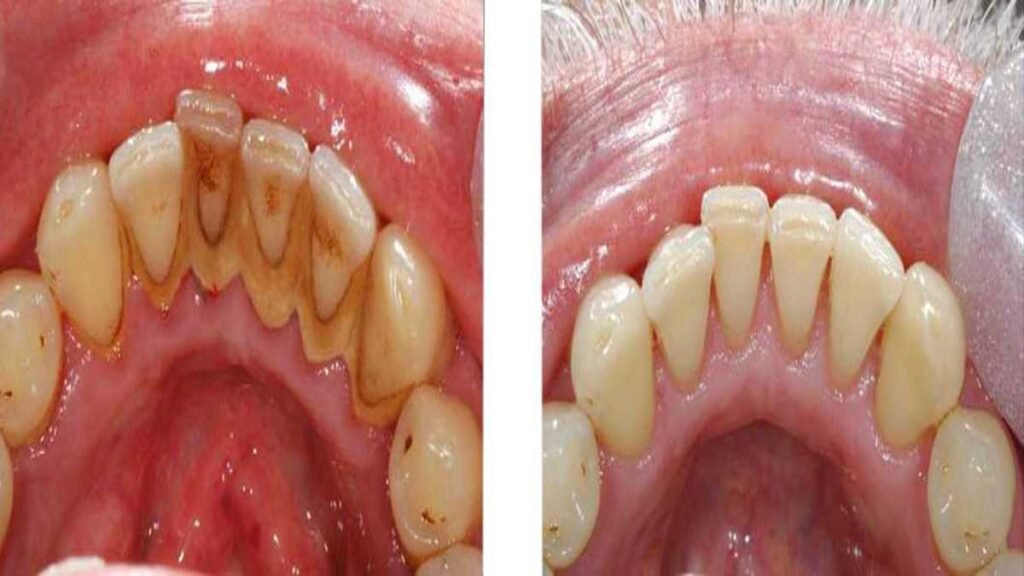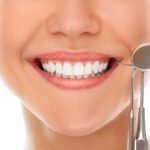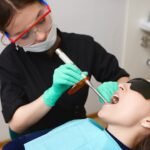Table of Contents
Common Dental Issues That Can Affect Your Teeth
Dental issues can greatly impact your oral health and overall well-being. One of the most common problems that individuals face is tooth decay. This occurs when plaque, a sticky film of bacteria, accumulates on teeth and interacts with sugars from food to produce acids that wear down tooth enamel. When left untreated, tooth decay can lead to cavities, infections, and even tooth loss.

Another prevalent dental issue is gum disease, also known as periodontal disease. This condition is primarily caused by the build-up of plaque and tartar along the gumline, leading to inflammation, bleeding, and eventual damage to the gum tissue and supporting bone structure. Without proper intervention, gum disease can progress to more severe stages, increasing the risk of tooth loss and posing potential risks to systemic health. Regular dental check-ups and effective oral hygiene practices are essential in preventing and managing these common dental issues.
Recognizing Early Signs of Dental Problems
When it comes to maintaining good oral health, recognizing early signs of dental problems is crucial in preventing serious complications down the road. One common early sign to look out for is tooth sensitivity, which can indicate issues like enamel erosion or tooth decay. If you experience sharp pain when consuming hot or cold foods and beverages, it’s essential to seek professional dental care to address the underlying problem promptly.
In addition to tooth sensitivity, noticing changes in the color or texture of your teeth can also signal potential dental issues. Discoloration, such as yellow or brown spots on the teeth, may indicate the presence of plaque or tartar buildup. Likewise, rough or uneven surfaces on the teeth could be a sign of enamel wear or erosion. Keeping an eye out for these early warning signs can help you address dental problems early on and prevent them from progressing into more serious conditions.
Difference Between Plaque and Tartar Build-Up
Plaque and tartar are common dental issues that can impact your oral health if left untreated. Plaque is a sticky film that forms on your teeth when bacteria mix with the sugars and starches from the food you consume. If not removed through proper oral hygiene practices like brushing and flossing, plaque can harden into tartar, which is a calcified deposit that is more difficult to remove and can lead to gum disease.

Plaque is a soft, sticky substance that is easily removed with regular brushing and flossing. However, once plaque hardens into tartar, it cannot be removed by regular brushing alone. Tartar can build up on the teeth and along the gum line, creating a rough surface that bacteria can easily cling to, leading to inflammation and potential damage to the gums. Regular dental cleanings are essential to remove tartar buildup and prevent the progression of gum disease.
How Plaque Forms on Your Teeth
Plaque forms on your teeth as a result of the natural bacteria that reside in your mouth. When these bacteria feed on the sugars and carbohydrates from the food you consume, they produce acids that can erode the enamel of your teeth. Over time, the accumulation of these bacteria, acids, and food particles forms a sticky film on the surface of your teeth, known as plaque. This plaque is initially colorless but can develop into a yellowish or brownish deposit if not removed through proper oral hygiene practices.
As plaque continues to build up on your teeth, it provides a conducive environment for more bacteria to thrive and multiply. The bacteria in plaque can produce toxins that irritate your gums, leading to inflammation and gingivitis if not addressed promptly. Additionally, if plaque is not removed through regular brushing and flossing, it can harden and turn into tartar, also known as calculus, which is more difficult to remove and requires professional dental intervention.
The Dangers of Ignoring Plaque Build-Up

Plaque build-up is a silent yet serious threat to your oral health. Ignoring the presence of plaque on your teeth can lead to a cascade of consequences that can impact not only your teeth but also your overall well-being. Plaque is a sticky film of bacteria that forms on the surface of teeth and along the gumline. When left unaddressed, this bacterial plaque can harden into tartar, which is much more difficult to remove.
The dangers of ignoring plaque build-up include an increased risk of tooth decay, gum disease, and bad breath. The bacteria in plaque produce acids that can erode the enamel of the teeth, leading to cavities and sensitivity. Furthermore, the inflammation caused by plaque along the gumline can progress to gum disease if not treated promptly. Regular brushing, flossing, and professional dental cleanings are essential to prevent the detrimental effects of plaque build-up.
Understanding the Impact of Tartar on Your Oral Health
Tartar, also known as dental calculus, forms when plaque is left untreated and mineralizes on the teeth. It appears as a hard, yellowish deposit that cannot be removed by brushing alone. The impact of tartar on your oral health can be significant. As tartar accumulates on your teeth, it provides a rough surface for more plaque to adhere to, leading to further bacterial growth and a higher risk of dental issues such as cavities and gum disease.
Moreover, the presence of tartar can irritate the gums, leading to inflammation and gingivitis. If left untreated, this inflammation can progress to periodontal disease, a more severe condition that can cause gum recession, bone loss, and eventually tooth loss. Therefore, managing tartar buildup through regular dental cleanings and proper oral hygiene habits is essential in preventing these detrimental consequences to your oral health.
How Tartar Can Lead to Gum Disease
Tartar, also known as calculus, is a hardened form of plaque that forms on the teeth when plaque is not properly removed through regular brushing and flossing. When tartar accumulates along the gum line, it can lead to gum disease, scientifically known as periodontal disease. Tartar provides an ideal environment for bacteria to thrive, causing inflammation and infection of the gums. This can lead to symptoms such as swollen, red, or bleeding gums, gum recession, bad breath, and even tooth loss if left untreated.
As gum disease progresses, it can result in more severe complications such as periodontitis, where the gums pull away from the teeth, forming pockets that become infected. The bacteria in these pockets can break down the bone and connective tissues that hold the teeth in place, eventually leading to tooth loss. Additionally, research has shown that there may be a link between gum disease and systemic conditions like heart disease, diabetes, and respiratory infections, highlighting the importance of addressing tartar build-up promptly to maintain overall health and well-being.
Preventing Plaque and Tartar Build-Up at Home
Plaque and tartar build-up can significantly impact your oral health if left unchecked. It is crucial to take proactive steps at home to prevent these issues. First and foremost, maintaining a consistent oral hygiene routine is essential. Brushing your teeth at least twice a day with a fluoride toothpaste and flossing daily can help remove plaque before it hardens into tartar. Additionally, incorporating an antimicrobial mouthwash can further combat bacteria in your mouth, reducing the risk of plaque formation.
Another crucial aspect of preventing plaque and tartar build-up at home is watching your diet. Limiting sugary and starchy foods can help reduce the amount of plaque-forming bacteria in your mouth. Opting for a balanced diet rich in fruits, vegetables, and lean proteins can promote overall oral health. Drinking water throughout the day can also help wash away food particles and bacteria, reducing the risk of plaque and tartar accumulation. By implementing these simple yet effective practices into your daily routine, you can significantly lower your chances of developing dental issues associated with plaque and tartar build-up.
Importance of Regular Dental Cleanings
Regular dental cleanings are a cornerstone of maintaining optimal oral health. Professional cleanings help remove plaque and tartar buildup that cannot be effectively eliminated by regular brushing and flossing alone. These routine cleanings play a vital role in preventing gum disease, cavities, and other dental issues by keeping your teeth and gums clean and healthy.
In addition to cleaning your teeth, dental cleanings also provide an opportunity for your dentist to examine your oral health more closely. By detecting any signs of potential problems early on, such as gum inflammation or decay, prompt intervention can be taken to address these issues before they escalate into more serious conditions. Regular dental cleanings not only contribute to a brighter smile but also serve as a proactive measure to safeguard your overall well-being.
Professional Treatments for Removing Tartar Build-Up
Professional treatments for removing tartar build-up are essential in maintaining optimal oral health. One of the most effective procedures for tartar removal is scaling, which involves using special dental tools to carefully scrape off the hardened deposits from the tooth surface and below the gumline. This process helps prevent the progression of gum disease and reduces the risk of tooth decay and other dental issues associated with tartar build-up.
In addition to scaling, another common professional treatment for removing tartar is root planing. This procedure focuses on smoothing out the root surfaces of the teeth to discourage bacteria and plaque accumulation, helping to prevent further tartar formation. Root planing also aids in reducing inflammation and promoting gum healing, making it an important step in addressing advanced cases of tartar build-up and gum disease. Regular professional dental cleanings and examinations are crucial in identifying and effectively treating tartar build-up before it leads to more severe oral health complications.
Signs That You May Have Plaque or Tartar Build-Up
Plaque and tartar build-up are common dental issues that can lead to various oral health problems if left untreated. Recognizing the signs of these build-ups early on can help prevent complications and maintain a healthy smile. One of the most noticeable signs of plaque accumulation is the formation of a sticky film on the teeth, especially along the gumline. This sticky film is comprised of bacteria, food particles, and saliva, serving as a breeding ground for harmful bacteria that can erode tooth enamel and cause cavities. Additionally, individuals may experience persistent bad breath, also known as halitosis, which can be a sign of excessive plaque build-up in the mouth.
| Sign | Description |
|---|---|
| Visual | * Yellowish, brown, or white film on teeth |
| * Crusty or bumpy texture on teeth, especially near the gumline | |
| * Visible staining on teeth, especially from coffee, tea, or tobacco | |
| Touch | * Fuzzy or rough feeling on teeth when running your tongue over them |
| Other | * Bad breath (halitosis) |
| * Red, swollen, or bleeding gums (gingivitis) | |
| * Receding gums |
Similarly, tartar build-up, which occurs when plaque hardens and calcifies, can manifest as a yellow or brownish deposit on the teeth. Unlike plaque, tartar cannot be removed through regular brushing and flossing, requiring professional intervention to prevent further complications. Individuals with tartar build-up may notice rough or uneven surfaces on their teeth, indicating the presence of hardened deposits. Additionally, tartar accumulation can contribute to gum inflammation and bleeding, leading to the development of gum disease if not addressed promptly. Regular dental check-ups and cleanings are essential in identifying and removing tartar before it progresses into more severe oral health issues.
How to Maintain Good Oral Hygiene Practices
Maintaining good oral hygiene practices is crucial in preventing dental issues and promoting overall oral health. To keep your teeth and gums healthy, it is important to brush your teeth at least twice a day with fluoride toothpaste and a soft-bristled toothbrush. Ensure that you are brushing for a full two minutes in gentle, circular motions to effectively remove plaque and food particles. Additionally, don’t forget to floss daily to clean between your teeth and along the gumline where your toothbrush may not reach. This helps to prevent the build-up of plaque and tartar that can lead to cavities and gum disease.
Along with regular brushing and flossing, incorporating mouthwash into your oral hygiene routine can provide additional benefits. Mouthwash can help to reduce bacteria in the mouth, freshen breath, and reach areas that may be difficult to clean with a toothbrush or floss. Choose a mouthwash that is antimicrobial and carries the American Dental Association (ADA) seal of approval for best results. Remember to also stay hydrated, maintain a balanced diet low in sugary and acidic foods, and schedule regular dental check-ups to monitor your oral health and address any potential issues early on. By following these practices consistently, you can help safeguard your teeth and gums against common dental problems and maintain a healthy smile for years to come.
Healthy Habits to Prevent Plaque and Tartar Build-Up
To maintain good oral hygiene and prevent plaque and tartar build-up, it is essential to establish healthy habits that promote dental health. Firstly, brushing your teeth twice a day with a fluoride toothpaste is crucial in removing plaque-causing bacteria and food particles from the surfaces of your teeth. It is recommended to use a soft-bristled toothbrush and to brush in gentle circular motions to effectively clean all areas of your mouth. Additionally, incorporating flossing into your daily routine can help remove plaque and debris from between your teeth and along the gumline, where toothbrushes may not reach.
Moreover, adopting a balanced diet low in sugary and acidic foods can significantly reduce the risk of plaque formation. Consuming fruits and vegetables high in fiber can stimulate saliva production, which aids in naturally cleansing the mouth and neutralizing harmful acids. Drinking water regularly throughout the day can also assist in washing away food particles and bacteria, promoting a healthier oral environment. By implementing these habits consistently, you can actively prevent the accumulation of plaque and tartar, safeguarding your dental health in the long run.
Factors That Can Increase Your Risk of Developing Plaque and Tartar
Poor Oral Hygiene Practices: One of the primary factors that can escalate the build-up of plaque and tartar on your teeth is inadequate oral hygiene. Failing to brush and floss regularly allows bacteria to thrive in the mouth, leading to the formation of plaque. Over time, if not removed, this plaque hardens into tartar, which is more challenging to eliminate and can contribute to various dental issues.
| Poor oral hygiene | Inadequate brushing and flossing can lead to plaque buildup, which can eventually harden into tartar. |
| Diet high in sugar and carbohydrates | Sugary and starchy foods can fuel the growth of bacteria in the mouth, leading to plaque formation. |
| Smoking and tobacco use | Tobacco use can increase the production of plaque and tartar, as well as contribute to gum disease and other oral health problems. |
| Dry mouth | Saliva helps to wash away food particles and bacteria in the mouth. A dry mouth can increase the risk of plaque and tartar buildup. |
| Certain medications | Some medications can reduce saliva production or cause changes in the composition of saliva, increasing the risk of plaque and tartar accumulation. |
| Age | As people age, they may be more prone to plaque and tartar buildup due to changes in saliva production and oral health habits. |
| Genetics | Some individuals may be genetically predisposed to develop more plaque and tartar than others, regardless of their oral hygiene habits. |
| Medical conditions | Certain medical conditions, such as diabetes and autoimmune disorders, can affect oral health and increase the risk of plaque and tartar buildup. |
| Infrequent dental visits | Regular dental cleanings and check-ups are essential for removing plaque and tartar that cannot be removed with brushing and flossing alone. Skipping dental appointments can increase the risk of plaque and tartar accumulation. |
Diet High in Sugary and Starchy Foods: The foods you consume play a significant role in your oral health. Diets rich in sugars and starches provide an ideal environment for bacteria to multiply and produce acids that attack the teeth. These acids not only weaken the tooth enamel but also promote the accumulation of plaque. Consequently, individuals who frequently consume sugary and starchy foods are more prone to developing plaque and tartar, increasing their risk of dental problems.
Consulting with Your Dentist for Proper Diagnosis and Treatment
When it comes to maintaining good oral health, consulting with your dentist for proper diagnosis and treatment is essential. Dentists are trained professionals who can identify early signs of dental issues and provide appropriate interventions to prevent further complications. By scheduling regular check-ups with your dentist, you can address any concerns promptly and ensure the health of your teeth and gums.
In addition to diagnosing dental problems, dentists can also recommend personalized treatment plans to address specific issues you may be facing. Whether it’s addressing plaque and tartar build-up, gum disease, or other oral health concerns, your dentist can provide effective solutions to improve your oral hygiene and overall well-being. By working closely with your dentist and following their recommendations, you can maintain a healthy smile for years to come.
How often should I visit my dentist for regular cleanings?
It is recommended to visit your dentist for regular cleanings every six months to maintain good oral health and prevent plaque and tartar build-up.
Can plaque build-up lead to more serious dental issues?
Yes, if plaque build-up is not properly removed, it can harden into tartar and lead to gum disease, tooth decay, and other oral health issues.
What are some signs that I may have plaque or tartar build-up?
Some signs of plaque or tartar build-up include bad breath, swollen or bleeding gums, tooth sensitivity, and visible yellow or brown spots on your teeth.
How can I prevent plaque and tartar build-up at home?
You can prevent plaque and tartar build-up at home by brushing your teeth twice a day, flossing daily, using mouthwash, and maintaining a healthy diet low in sugars and starches.
Are there any factors that can increase my risk of developing plaque and tartar?
Yes, factors such as poor oral hygiene, smoking, certain medications, and genetics can increase your risk of developing plaque and tartar build-up.
What professional treatments are available for removing tartar build-up?
Professional treatments for removing tartar build-up include scaling and root planing, which are deep cleaning procedures performed by a dentist or dental hygienist.
How important is it to consult with my dentist for proper diagnosis and treatment?
It is crucial to consult with your dentist for proper diagnosis and treatment of dental issues, as they can provide personalized care and recommend the best course of action for your oral health.




